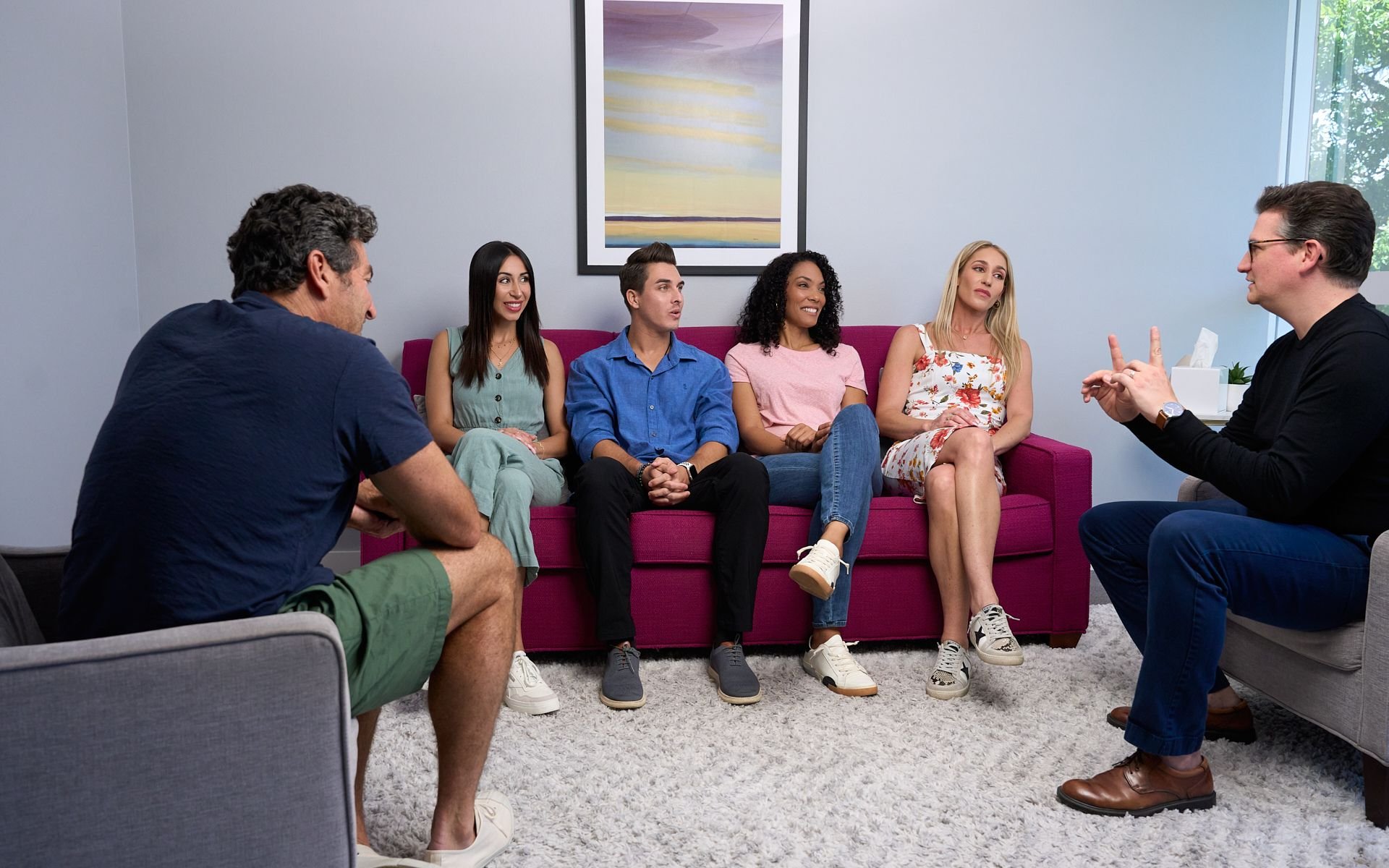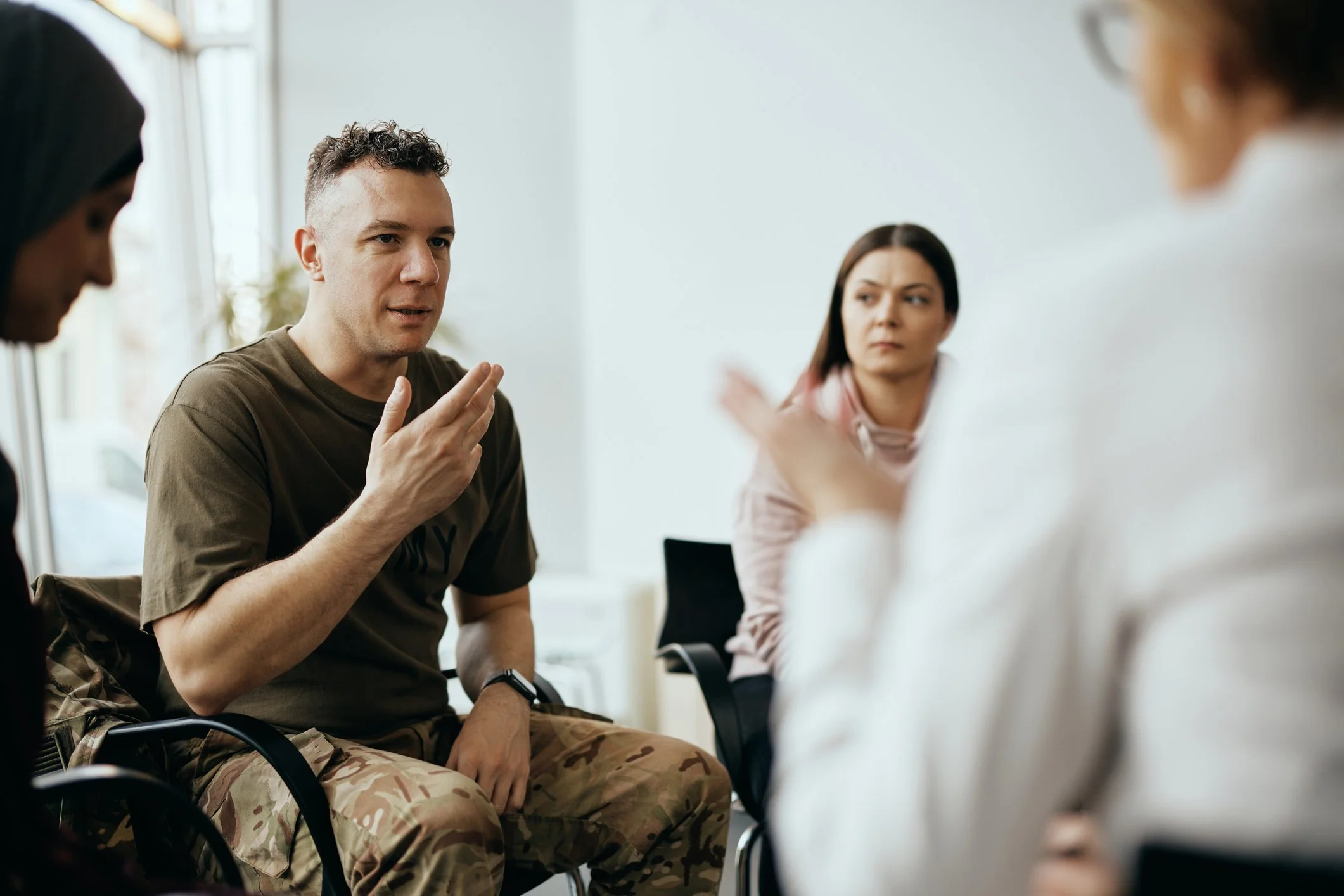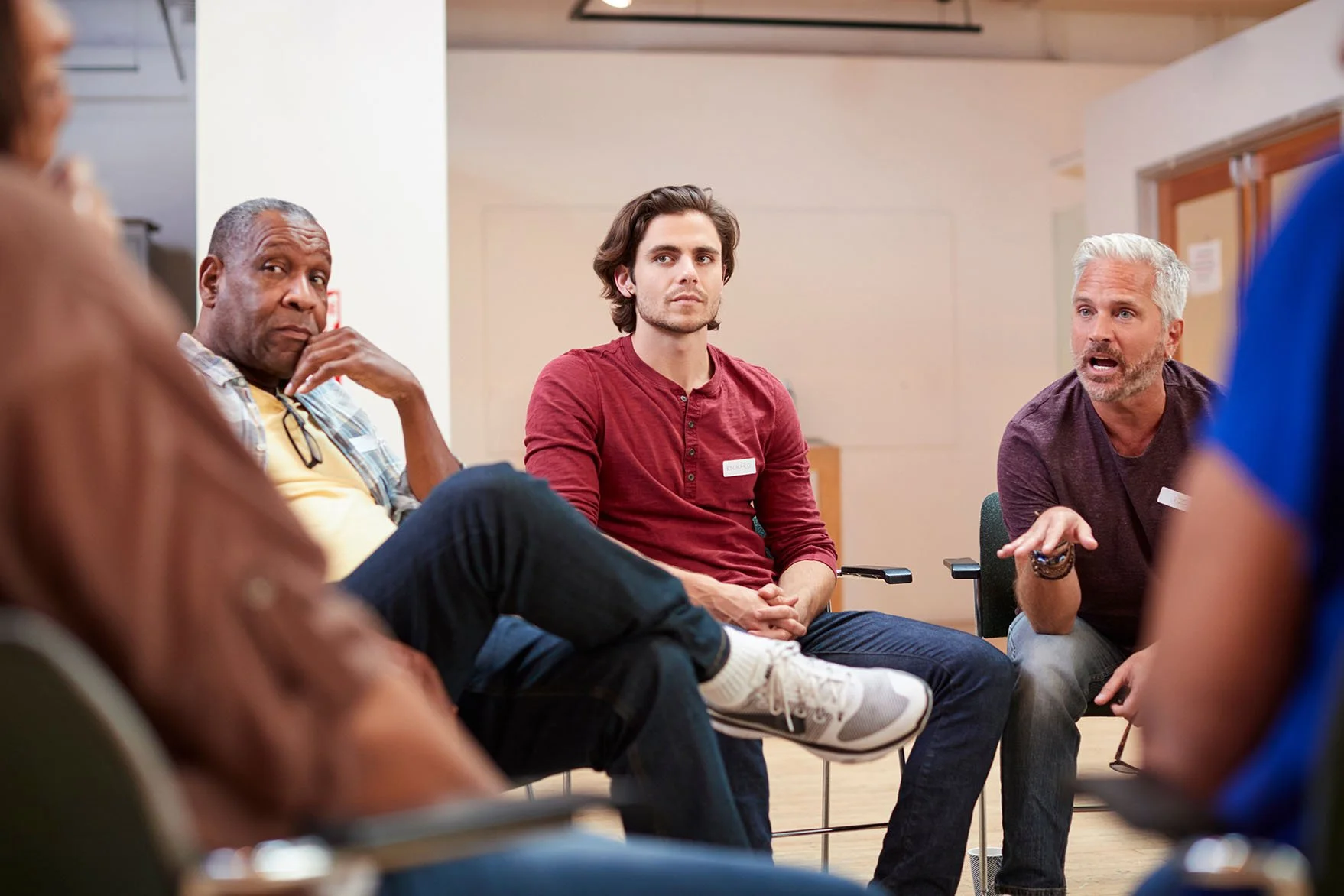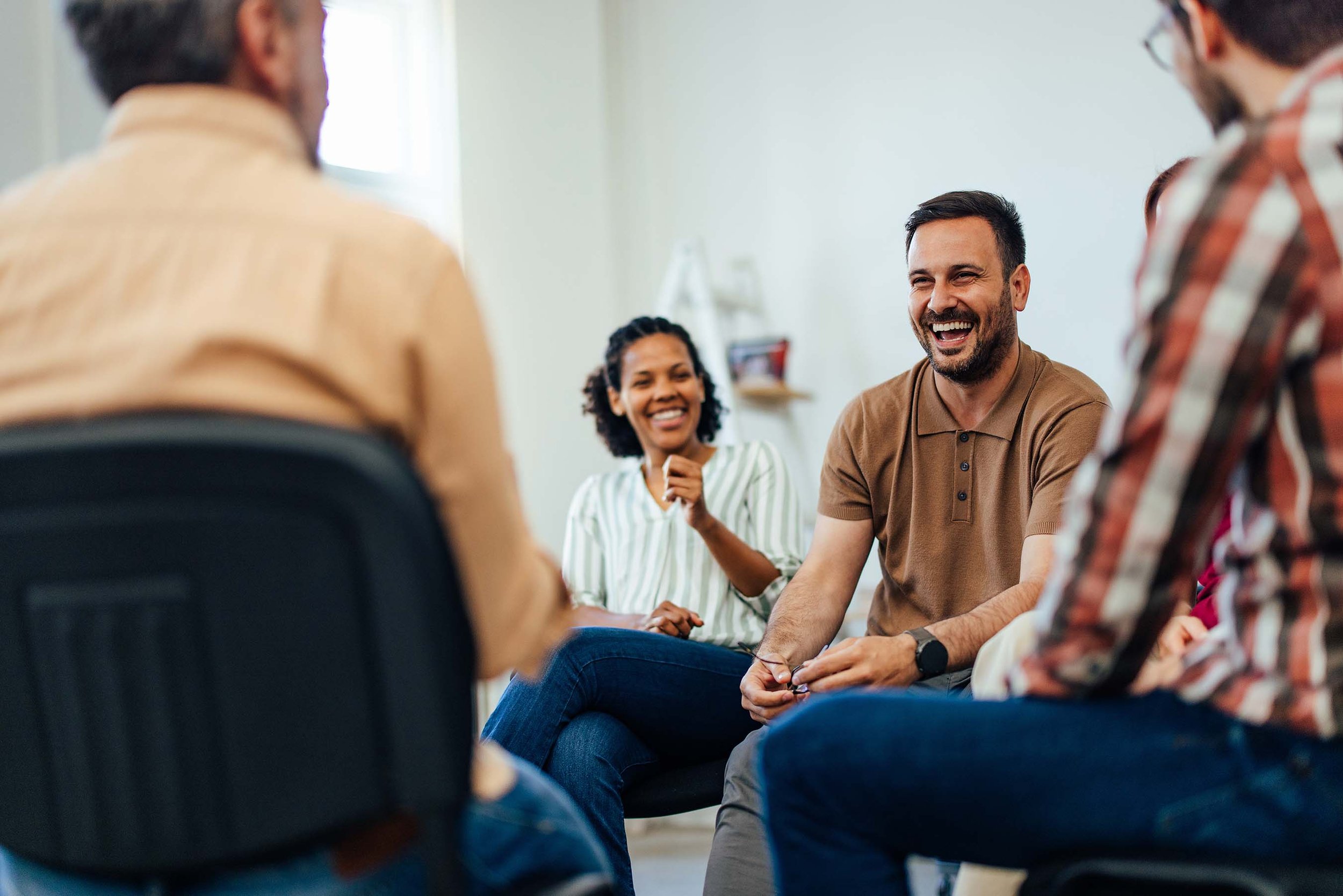
Find meaningful connection and support through group therapy.
If you’re someone who is struggling with an issue in your life that feels overwhelming, group therapy could help you improve your everyday life.
In group therapy, people share their thoughts and experiences with the whole group, allowing them to give and receive support from a group of people who understand what they’re going through. Members can process their experiences, practice new skills and ways of thinking, and provide and receive helpful feedback.
Why is joining group therapy beneficial?
Groups help validate and normalize people’s thoughts, feelings, and experiences.
Group therapy can offer people an opportunity to feel accepted and understood, instead of feeling that their behaviors are “abnormal.” People can build a sense of community and shared experience, which can decrease their feelings of isolation and suffering.
Participating in group therapy helps people develop more empathy for others, which in turn allows people to be more empathetic to themselves.
The skills learned in group therapy can enhance the individual therapy experience by offering a chance to practice what they have learned or have it reinforced in a different way.

Types of Groups at CBT of Central & South Florida
The types of groups offered at our practice vary depending on our clients’ needs. Some of the groups currently offer or have run in the past include:
Insomnia
Eating Disorders
Veterans with Substance Use Disorders
Post-traumatic stress disorder (PTSD)
Addiction/substance use
Obsessive-compulsive disorder (OCD)
Acceptance and commitment therapy
Exposure and response prevention
Who is a good candidate for group therapy?
Most people can benefit from group therapy, especially those who:
- Have anxiety when in social situations
- Want to develop social skills
- Are experiencing a life transition such as parenthood, pregnancy, postpartum depression or anxiety
- Indentify as LGBTQ or transgender
- Have substance use disorders
- Experience PTSD
- Want a short-term skill-focused group
- Need a more economical solution than individual therapy - the cost is less than individual therapy
- Are looking for supplemental therapy in addition to individual therapy
- Are seeking specific CBT skills in addition to their other form of therapy at an outside practice

What to expect in group therapy at CBT of Central & South Florida
At CBT of Central & South Florida, you don't have to be in individual therapy at our practice to join a therapy group.
Our practitioners offer two types of groups: ongoing recurring groups and short term groups. Short term groups have a set end date and are usually focused on specific issues and skill building.
Group therapy generally meets weekly and lasts anywhere from 60 to 90 minutes.
Groups usually have 4-8 members with a therapist serving as the group facilitator.
Our therapists will create a safe space for people to share openly about the topics and problems that they experience and make sure everyone gets an opportunity to participate.
Oftentimes, our skill focused groups will have exercises for participants to complete in between sessions.
Group counseling sessions are confidential. Confidentiality is critical to establishing a safe and trusting atmosphere in which all members can feel safe and comfortable sharing their experiences. Group participants will agree not to share anything discussed during group sessions or any information about group members to anyone outside of the group.
Group therapy is available both virtually and in-person near our Orlando office.
If you’d like to try group therapy, we will conduct an initial evaluation to determine an appropriate placement in a group that is aligned with your purpose and goals.
Therapy Delivered With Respect, Empathy, and Compassion.
We view all people as unique individuals who are doing the best they can to cope with the circumstances they are presented with. Although we are CBT specialists that help people using the most current and effective treatments, we also recognize how privilege, power, unequal access to resources, prejudice, racism, and other systemic issues affect a person’s lived experience. We approach each relationship with the respect, empathy, and compassion that all people deserve.
Our practitioners have also received additional training and supervision in culturally competent practices, and continue to do so as part of participating in our group.
Contact our office to get started with group therapy.














